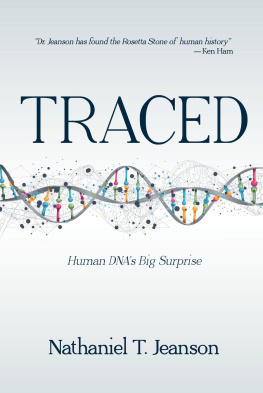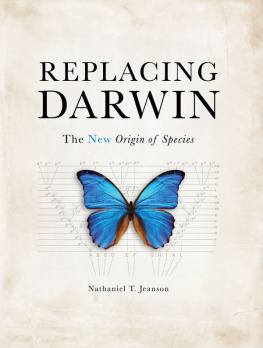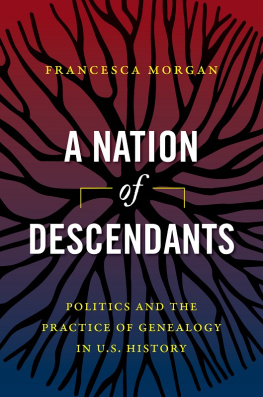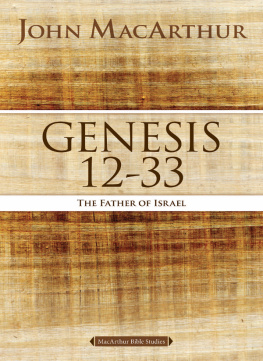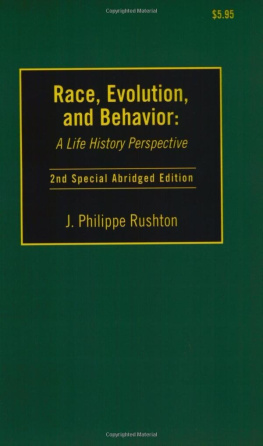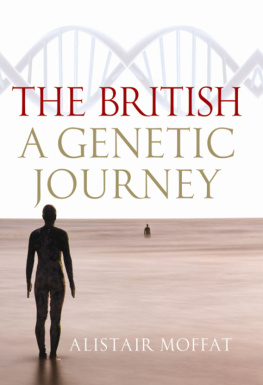First printing: March 2022
Fourth printing: August 2022
Copyright 2021 by Nathaniel T. Jeanson. All rights reserved. No part of this book may be reproduced, copied, broadcast, stored, or shared in any form whatsoever without written permission from the publisher, except in the case of brief quotations in articles and reviews. For information write:
Master Books, P.O. Box 726, Green Forest, AR 72638
Master Books is a division of the New Leaf Publishing Group, Inc.
ISBN: 978-1-68344-291-2
Digital ISBN: 978-1-61458-793-4
Library of Con gress Control Number: 2021948815
Cover by Diana Bogardus
Unless otherwise noted, Scripture quotations are from the New King James Version (NKJV) of the Bible.
Please consider requesting that a copy of this volume be purchased by your local library system.
Printed in the United States of America
Please visit our website for other great titles:
www.masterbooks.com
For information regarding author interviews,
please contact the publicity department at (870) 438-5288.
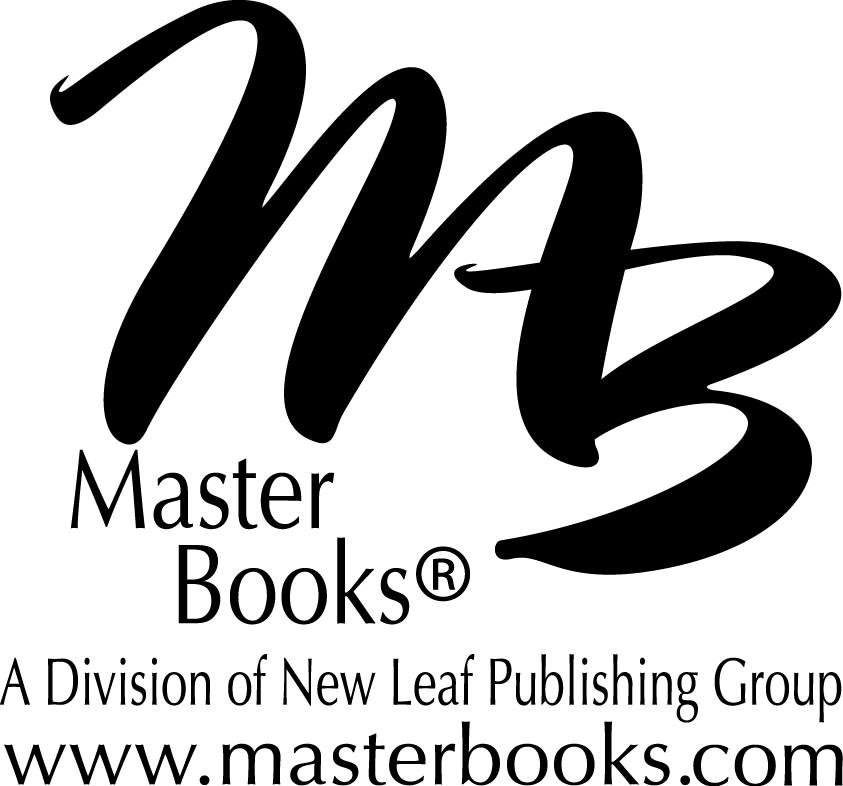
For David, Billy, and Axel
And all those who long for the "rest of the story"
Advance Praise for Traced :
... a ground-breaking book... likely to become a classic.
Ola Hssjer, PhD, Professor of Mathematical Statistics, Stockholm
University, Sweden
... extremely well researched.
Emerson Thomas McMullen, PhD, Emeritus Associate Professor of History,
Georgia Southern University
... a profoundly intriguing book. It throws a new light on ancient history
and will leave the reader eager to learn more.
Steven E. Woodworth, PhD, Professor of History,
Texas Christian University
... pulls the curtain back further on the mystery of early human history
using genetics, history, and linguistics... goes a long way toward
reconstructing the origins of the human family.
Les Bruce, PhD, retired research specialist,
Summer Institute of Linguistics International
Jeanson will take you on a tour of human history like you
have never seen before.
Joe Owen, Director, Answers in Genesis Latin America
... sheds a scientific light on our understanding of humanity's
past... a new history.
Yingguang Liu, M.M. (Shanghai), PhD, Associate Professor,
Liberty University College of Osteopathic Medicine
... an exciting journey to discover human history in the light
of genetic discoveries.
Nagy Iskander, MB.Bch (Cairo), Medical Doctor,
Fellow of the Royal College of Surgeons of England,
Fellow of the Royal College of Surgeons of Glasgow
... a novel way to look at how our planet was populated.
Rick Roberts, PhD, Associate Professor of Biology, Grace College
... will be a valuable resource in helping your children
answer the questions that most history books don't cover.
Simon Turpin, Executive Director for Answers in Genesis UK/Europe
Table of Contents
AFRICA
EUROPE AND CENTRAL ASIA
THE MIDDLE EAST
SOUTH ASIA
THE FAR EAST
THE PACIFIC
THE AMERICAS
EPILOGUE
Introduction
The Hiddenness of History
I n the late 1990s, I was a high school student living in small-town southeastern Wisconsin and driving a '93 green Mercury Tracer past farmers' fields to a tiny Christian school 25 minutes away. For two of those semesters, world history class lifted me far away in time and space from my modern parochial home. And it left me with nagging questions.
In broad brushstrokes, I learned a history that went something like this: The first civilizations arose half a world away from Wisconsin. In ancient Mesopotamia, the Sumerians appeared. To the southwest in Africa, the ancient Egyptians also emerged. To the west and northwest in the Mediterranean, the first European civilizations (the Minoans and Mycenaeans) ascended.
As history progressed, it focused on this same small geographic triangle. One kingdom rose and fell after another, including ancient Assyria, Babylon, and Persia. However, these Asian empires eventually gave way to a European one. Alexander the Great rushed his armies through Persia to create, at that time, the world's largest empire.
The focus of my class then shifted to Europe. We learned that the ancient Greeks were eventually overrun by the Romans. For several hundred years, the Romans dominated the Mediterranean and western Europe. Then they fell to Germanic tribes of barbarians, sending Europe plummeting into the Dark Ages.
Europe awoke from the Dark Ages to the rising culture of the Renaissance. The continent recovered some of the glory of the great Greek and Roman ideals. Then the Reformation shook the European world. Eventually, the inevitable march of technological progress pushed Europe to venture out in the Age of Exploration, ushering in an era which brought together East and West, Old World and New World, into one global enterprise.
This was the story I was taught. Like many students, I learned the required facts and recited them on tests. But the experience left me unsatisfied.
Who did the ancient Sumerians come from? From whom did the Egyptians arise? What about the Minoans? Mycenaeans? Greeks? Romans? When these empires were overthrown, what happened to the people of these ancient civilizations? Did they just recede into the shadows of history? Did they go extinct? Are they still with us today?
My history education never answered these questions. It was as if civilizations popped into existence and then disappeared into oblivion.
I knew this couldn't be true. But I had nothing to offer in its place.
The narrow focus of this history also nagged at me. Along the way, I'm sure we learned something about historical India and China. We may have touched on the Aztecs and Mayans in the Americas. But if we did, I didn't retain much of their histories.
In other parts of the globe, large gaps in the timeline remained in my mind. We learned next to nothing about what was going on north of the Rio Grande before Europeans arrived. My course left the pre-European history of sub-Saharan Africa as a large void. The pre-European peoples of Australia and of the Pacific had no story at least none that was taught to me. Central Asia the vast landmass between Europe and China and above the Middle East was hardly discussed, except to highlight the massive Mongolian empire of Genghis Khan.
What had happened in these places? In these locations, the indigenous peoples had no narrative to explain their existence. Their history seemed a big blank slate.
Again, I knew this couldn't be true. Again, I had nothing to offer in its place.
I never thought that one day I'd be personally uncovering the answers to these questions.
*******
By training, I'm a biologist. I did my Bachelor of Science at the University of Wisconsin-Parkside. Officially, my degree was titled Molecular Biology and Bioinformatics . In more understandable terms, my training involved looking at life at the tiniest levels the microscopic and chemical levels (the Molecular Biology part of the degree). And it involved analyzing the results with computers (the Bioinformatics part of the degree). I learned these skills in the classroom and in the lab, where I worked with single-celled algae. My goal or, I should say, the goal of the lab in which I trained was to understand the larger question of how plants genetically control photosynthesis, the process by which they turn sunlight into useful energy.

